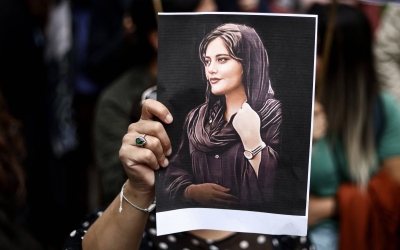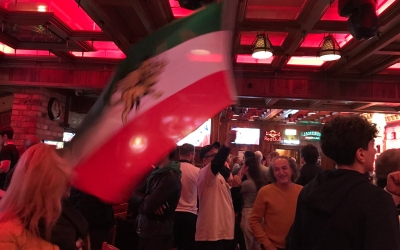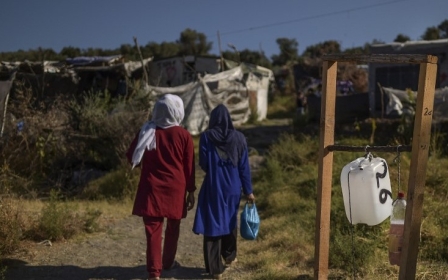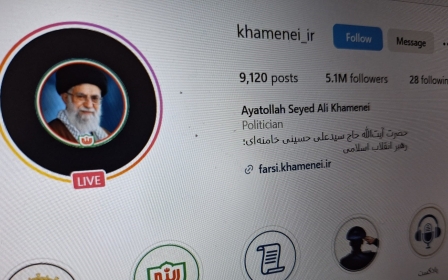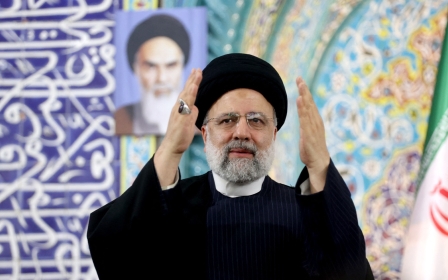Iranian press review: Tehran targets Kurdish dissent in wave of arrests
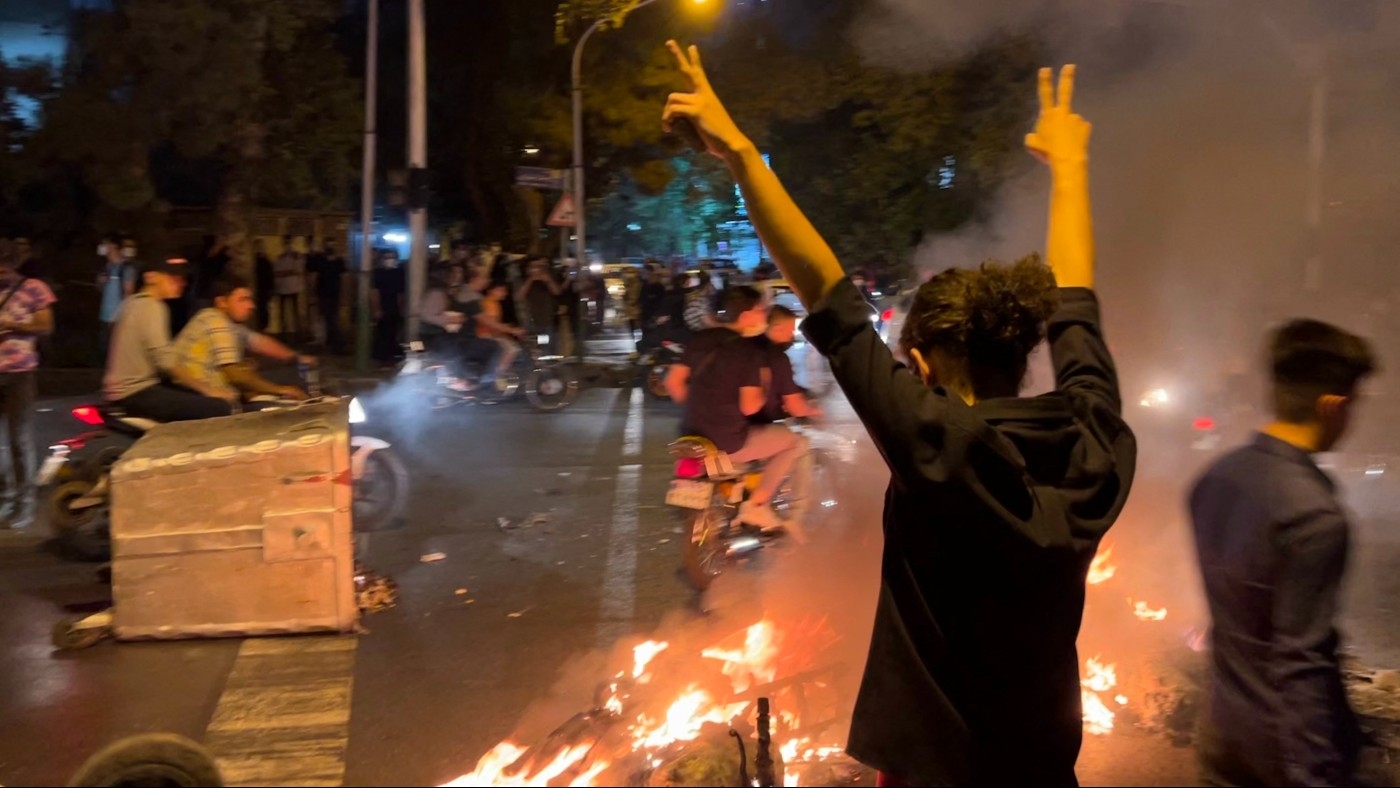
Kurdish activists targeted
The Iranian establishment has significantly escalated pressure on Kurdish activists living in the western parts of the country, according to human rights organisations.
On Saturday, the HRANA rights organisation reported that Safa Aely, uncle of the late Mahsa Amini, received a five-and-a-half-year prison sentence and a two-year ban from leaving the country on charges of "propaganda against the establishment" and "collusion against national security".
Amini, a 22-year-old Kurdish woman, died in the custody of Iran's Islamic Morality Police on 16 September 2022. Her death triggered nationwide anti-establishment demonstrations brutally suppressed by the Islamic Revolutionary Guard Corps and the Basij paramilitary forces.
Aely, who was organising demonstrations to mark the anniversary of his niece's death, was arrested on 5 September 2023.
Stay informed with MEE's newsletters
Sign up to get the latest alerts, insights and analysis, starting with Turkey Unpacked
In addition to Aely's imprisonment, other Kurdish activists were arrested in recent days as the regime implemented a new wave of suppression ahead of next month's parliamentary and Assembly of Experts elections.
On Tuesday, the Hengaw human rights group reported the arrest of Shaban Moridi, a Kurdish political activist, in the city of Javanroud.
More arrests took place in the Kurdish cities of Muchesh, Sanandaj and Divandarreh, where Hussein Saaed Mucheshi (55), Mostafa Zaher Zohour (57), and Kaveh Chupani (38) were detained.
Iran's intelligence services and judicial system have not released any information about the allegations against the three activists or their place of detention.
Reformists to participate in 'not free' election
Amid increasing debates about boycotting or taking part in the upcoming parliamentary and Assembly of Experts elections, 110 political activists and former reformist politicians issued a statement urging participation in what they termed "not a free election".
On Monday, this statement was widely published in reformist dailies and websites under the headline, "Initiating Change".
The statement emphasised that Iran's Islamic theocracy made it impossible to hold free elections. However, the signatories suggested that taking part in the elections would serve as a protest and resistance against the establishment's attempts to strip them of their meaning.
Elections in Iran are highly controlled by the establishment, with candidates vetted by the powerful Guardian Council, whose 12 members are directly and indirectly appointed by the supreme leader.
Addressing this issue, the reformists' statement said: "The current election falls short of embodying the principles of free and fair elections.
"The procedures implemented by the election executives have exhibited heightened intensity compared to previous instances, aimed at 'purifying' both the candidates and the voters."
Despite acknowledging the unfairness of the elections, this group of activists and former politicians stated that by participating in the elections they were pursuing two goals.
"First, resistance to the advance of 'purifying' and regressive forces, and second, taking a step, even a small one, forward in the path of gradually building the grounds and conditions for the realisation of free elections," read the statement.
In Iranian politics, the term "purification" is used to explain the systematic removal or sidelining of critics and rivals by the hardline rulers.
Establishment blamed for Qatar football loss
The recent defeat of the Iranian national football team by Qatar in the AFC Asian Cup 2024 semi-final has sparked widespread anger and frustration among Iranians, reflecting a broader discontent with the establishment.
Following the 7 February defeat, numerous local outlets criticised the government for the mismanagement of sports and a propaganda campaign surrounding the tournament aimed at bolstering the credibility of the establishment.
On 12 February, Saeed Khoshbin, a journalist at Saazandegi daily, pointed out that Qatar's success was attributed to sound governance, implying a lack of such principles in Iran.
"Qatar demonstrated that good governance works wonders not only in the economy, energy, and international politics but also in football. Cheers to the Qataris who, despite their small country, have big dreams and showed everyone that, to make it big, you don't have to be a big country," Khoshbin wrote.
Since anti-establishment protests in 2022, football has become a battleground for the government's supporters and dissidents and ordinary people calling for a change in the country's governance.
This has resulted in the celebration of every loss suffered by Iran's national football team since September 2022, in opposition to officials who use the team's victories as a symbol of establishment success.
Addressing this issue, many criticised the reporting of famous sports commentators, including Mohammadreza Ahmadi, during the matches played by Iran's national team.
"The symbol of incompetence [in national TV] was Mohammadreza Ahmadi, a reporter who, from the beginning of the cup, irritated the audience with his ear-splitting screams and exaggerated gestures, and finally, he was silenced in the worst possible way," wrote the Roozno website.
"We are grateful that with this defeat we don't have to hear you, master, at least for a while," concluded the article.
* Iranian press review is a digest of news reports not independently verified by Middle East Eye
Middle East Eye delivers independent and unrivalled coverage and analysis of the Middle East, North Africa and beyond. To learn more about republishing this content and the associated fees, please fill out this form. More about MEE can be found here.


